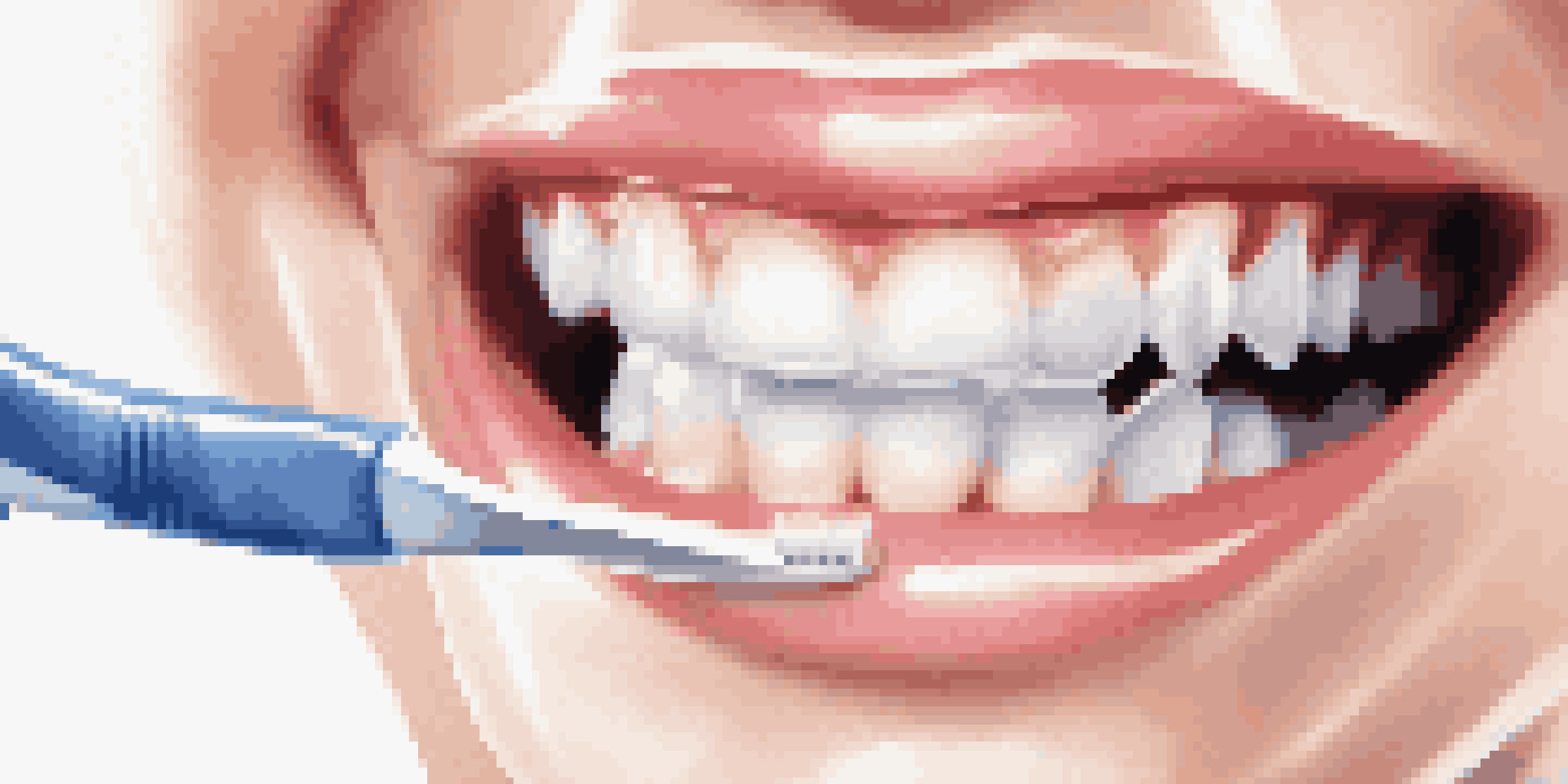The Relationship Between Oral Health and Cardiovascular Fitness

Understanding Oral Health and Its Importance
Oral health refers to the well-being of your mouth, teeth, and gums. It's not just about having a bright smile; it's about preventing diseases that can affect your overall health. Good oral hygiene practices, like brushing and flossing, play a crucial role in maintaining this health.
The mouth is the gateway to the body; it is important to keep it healthy, as it can affect overall health.
Many people overlook the connection between oral health and other bodily systems. However, the mouth can be a gateway for bacteria to enter the bloodstream, potentially impacting your heart and other vital organs. Thus, understanding the importance of oral health is the first step in safeguarding your cardiovascular fitness.
Regular dental check-ups and cleanings can help catch any issues early, preventing complications that could affect your heart health. Just like you schedule workouts for your cardiovascular fitness, make time for your oral health to ensure a holistic approach to well-being.
How Oral Bacteria Can Affect Heart Health
Research shows that bacteria from the mouth can travel through the bloodstream and may contribute to heart disease. Conditions such as gum disease (periodontitis) can increase inflammation and lead to the buildup of plaque in arteries. This plaque buildup can restrict blood flow and elevate the risk of heart attacks.

Imagine your mouth as a bustling city with bacteria as its residents. If one part of the city becomes overcrowded or mismanaged, it can spill over into neighboring areas, causing chaos. In the same way, poor oral health can disrupt the balance in your body, impacting your heart's health.
Oral Health Affects Overall Wellness
Good oral health is crucial not only for a bright smile but also for preventing diseases that can impact your heart and overall health.
Maintaining proper oral hygiene can significantly reduce the risk of these harmful bacteria entering your bloodstream. By brushing and flossing regularly, you are essentially keeping the streets of your mouth clean, promoting not just a healthy smile but also a healthier heart.
Common Oral Health Issues Linked to Cardiovascular Problems
Gum disease is one of the most common oral health issues that can adversely affect heart health. When bacteria thrive in the mouth, they can cause inflammation of the gums, leading to gingivitis and, if untreated, periodontitis. This inflammation can trigger a systemic response, affecting your cardiovascular system.
Oral health is a critical part of your overall health and well-being, and poor oral hygiene can lead to serious health issues.
Another issue is tooth decay, which can also be associated with heart health. Cavities and infections can lead to chronic inflammation, creating a link between oral health and heart disease. Just like ignoring a small crack in a dam can lead to a major flood, neglecting dental issues can have significant consequences.
Understanding these common issues can help you take proactive steps toward maintaining both your oral and heart health. Regular dental visits can catch these problems early, allowing you to tackle them before they escalate.
The Role of Nutrition in Oral and Heart Health
Nutrition plays a crucial role in both oral health and cardiovascular fitness. A diet high in sugars and processed foods can lead to tooth decay and gum disease, which, as we've discussed, can impact heart health. On the flip side, a balanced diet rich in fruits, vegetables, and whole grains promotes both oral and heart health.
Think of your body as a car; the fuel you put in determines how well it runs. Just like premium fuel can enhance a car's performance, a nutritious diet can fuel your body, supporting both your oral hygiene and cardiovascular system. Foods rich in antioxidants, like berries, help reduce inflammation and promote healthy gums.
Nutrition Supports Oral and Heart Health
A balanced diet rich in nutrients can enhance both your oral hygiene and cardiovascular fitness.
Incorporating heart-healthy foods such as nuts, fatty fish, and leafy greens can create a synergistic effect, benefiting both your mouth and heart. By making mindful eating choices, you’re not just caring for your teeth but also strengthening your cardiovascular fitness.
The Impact of Lifestyle Choices on Oral and Heart Health
Lifestyle choices, such as smoking and excessive alcohol consumption, can negatively affect both oral and heart health. Smoking is a major risk factor for gum disease and can lead to poor circulation, ultimately impacting heart health. Similarly, heavy drinking can lead to oral health issues and increase the risk of cardiovascular diseases.
Picture a tree with deep roots; if one root is compromised, the entire tree can suffer. Just as smoking or excessive drinking can weaken one part of your health, it can have cascading effects on your overall well-being. Making healthier lifestyle choices can significantly improve both your oral and heart health.
Quitting smoking and moderating alcohol intake can lead to noticeable improvements in your oral health, which in turn can support your cardiovascular fitness. Small changes in your daily habits can lead to big rewards in your health journey.
The Connection Between Stress, Oral Health, and Heart Health
Stress can take a toll on your body in various ways, including your oral health and cardiovascular fitness. When you're stressed, you may neglect your oral hygiene or resort to unhealthy habits like grinding your teeth, which can lead to dental issues. This neglect can create a vicious cycle that ultimately affects your heart health.
Think of stress as a storm that can disrupt a calm sea. Just as turbulent waters can affect a ship's journey, stress can lead to chaos in your body, impacting both your oral and heart health. Finding ways to manage stress is crucial for maintaining balance in your life.
Regular Check-ups Are Essential
Routine dental visits are key to catching early signs of issues that could affect both your oral health and heart health.
Incorporating stress-reducing practices like exercise, meditation, or hobbies can benefit both your mental well-being and your physical health. By managing stress effectively, you can protect your mouth and heart from the adverse effects of life's pressures.
Regular Check-ups: A Key to Better Oral and Heart Health
Regular dental check-ups are essential for maintaining both oral health and cardiovascular fitness. Dentists can spot early signs of gum disease or other issues that could affect your heart. By scheduling routine visits, you’re investing in your health and potentially preventing larger problems down the road.
Consider dental visits as a tune-up for your body. Just like you wouldn’t ignore a warning light in your car, you shouldn’t overlook the signs of poor oral health. Early intervention can save you from more extensive treatments later, benefiting both your mouth and heart.

Incorporating dental check-ups into your health routine can create a proactive approach to wellness. Combine these visits with regular cardiovascular assessments to ensure that both your oral and heart health are in top shape.